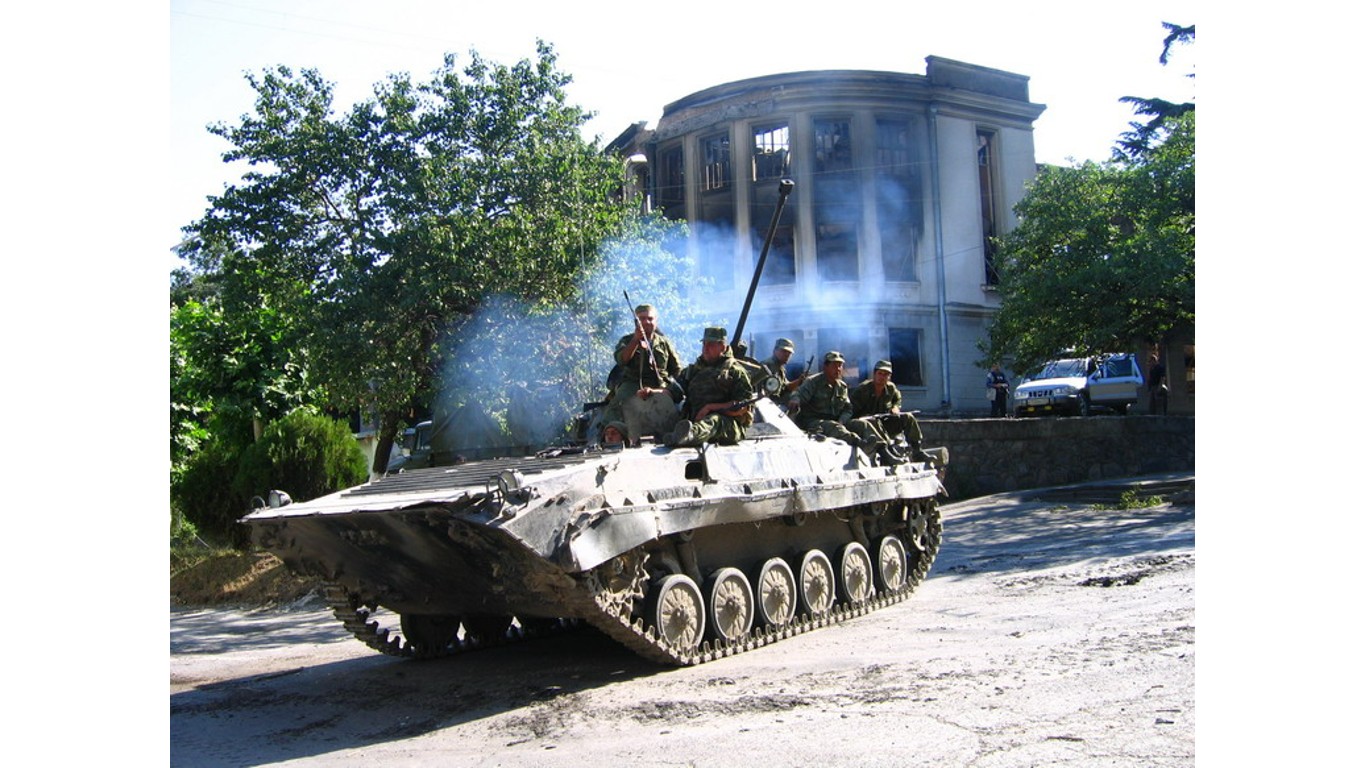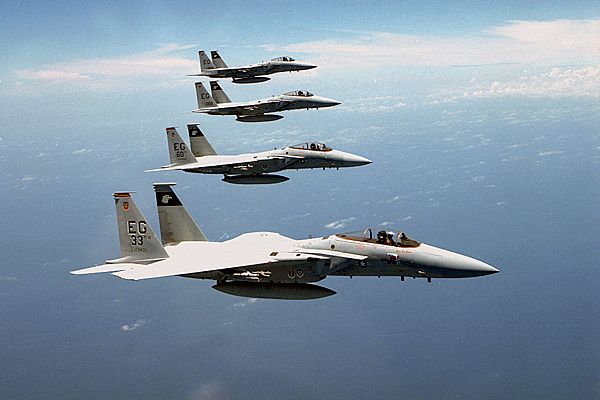
The U.S. War in Afghanistan ended a year ago last month. The 20-year armed conflict was the longest in American history. The second Iraq War, which officially ended in 2011, was shorter, at eight years. However, a second conflict arose as a direct result of the first in 2013 between the Islamic State new Iraqi government and its allies, keeping the United States involved for several more years.
Not all wars are as drawn out as those two post-9/11 conflicts. In some instances, wars can quickly come to a head – sometimes due to a quick and decisive victory by one side, other times due to swift intervention by the international community that convinces both sides to lay down their weapons. In fact, a number of international conflicts have ended in a matter of days, if not hours.
To determine the shortest wars in history, 24/7 Wall St. reviewed a list of major international conflicts that lasted less than a month, as compiled by The Independent.
The shortest wars in history span all different time periods and locations on the globe – one conflict on this list occurred nearly 1,000 years ago, while another ended in 2008. These wars took place in Europe, Asia, Africa, Central America, and the Middle East.
It can be difficult to pin down exactly when many wars started, given that their beginnings are often messy and irregular, sometimes beginning with small skirmishes before they evolve into full-on conflicts.
These brief wars are not the norm. Often, armed conflicts can drag out for months, if not years. Also, many wars are the result of long simmering conflicts that devolved into war, with countries fighting on and off for generations. These are the longest wars in history.
Click here to see the shortest wars in history
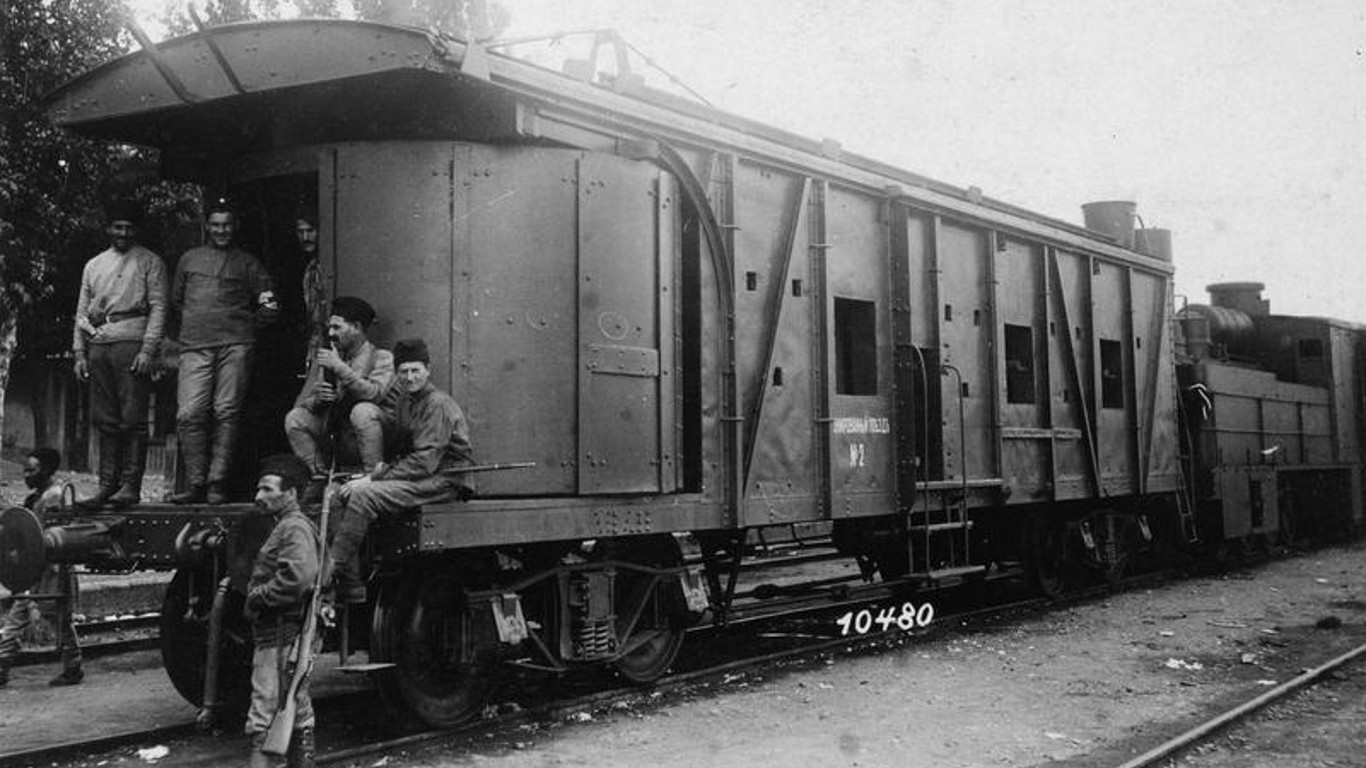
10. Georgian-Armenian War
> Length: 24 days
> Span: Dec. 7-31, 1918
> Combatants Georgia, Armenia
The Georgian-Armenian War is one of the shortest conflicts on record, lasting just 24 days in December of 1918. The neighboring nations in the Caucasus region had a border dispute, fighting for territory after both nations declared their independence from the Russian Empire in 1918.
[in-text-ad]
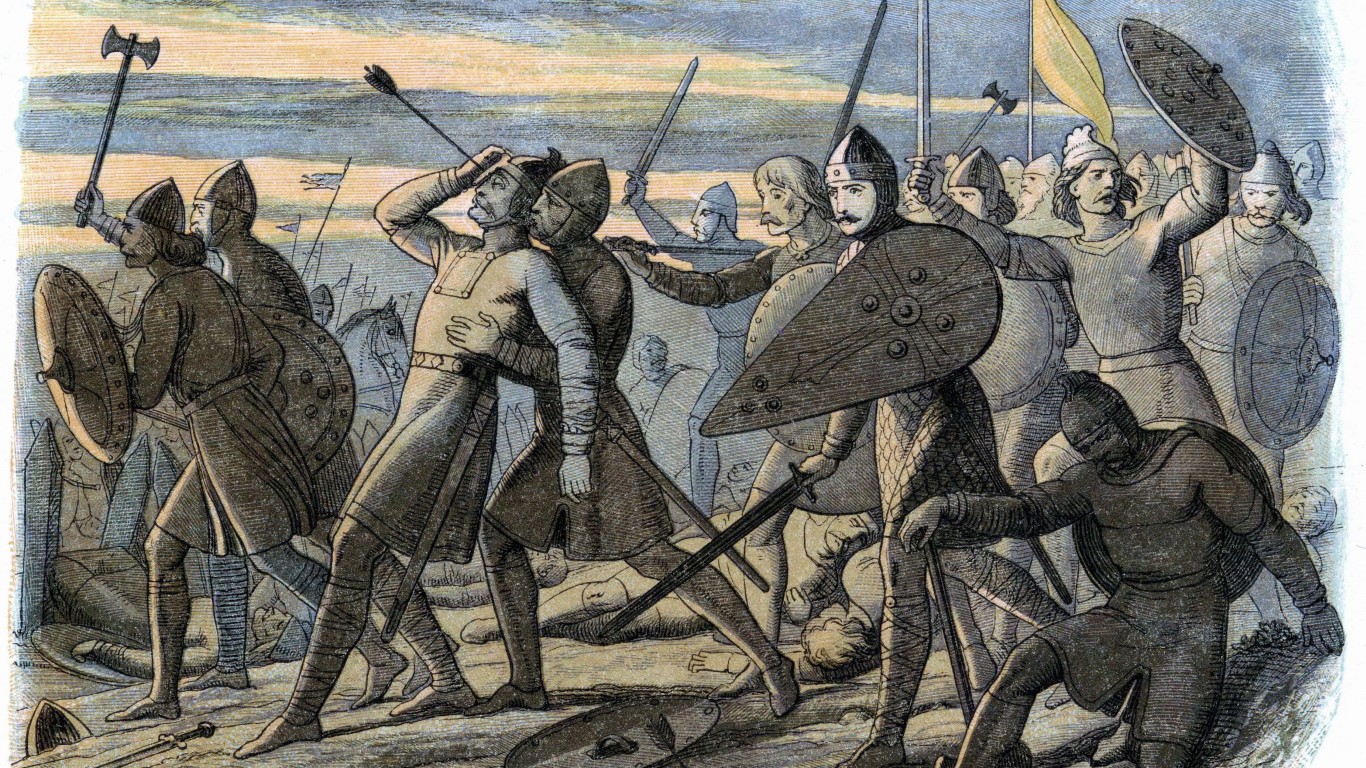
9. Norman Conquest
> Length: 17 days
> Span: Sep. 28-Oct. 14, 1066
> Combatants Normans, England
The Norman Conquest was one of the most pivotal wars in human history. Norman ruler William the Conqueror felt he was entitled to the English throne because of a promise made to him by King Edward. But on his deathbed, the childless Edward made nobleman Harold Godwineson his heir.
On Sept. 28, 1066, William led his forces into England, seizing the town of Pevensey. The two sides met at the decisive Battle of Hastings 17 days later. King Harold was killed in battle, and his army was soundly defeated. William became the first Norman king of England, ending the Anglo-Saxon era of English rule.
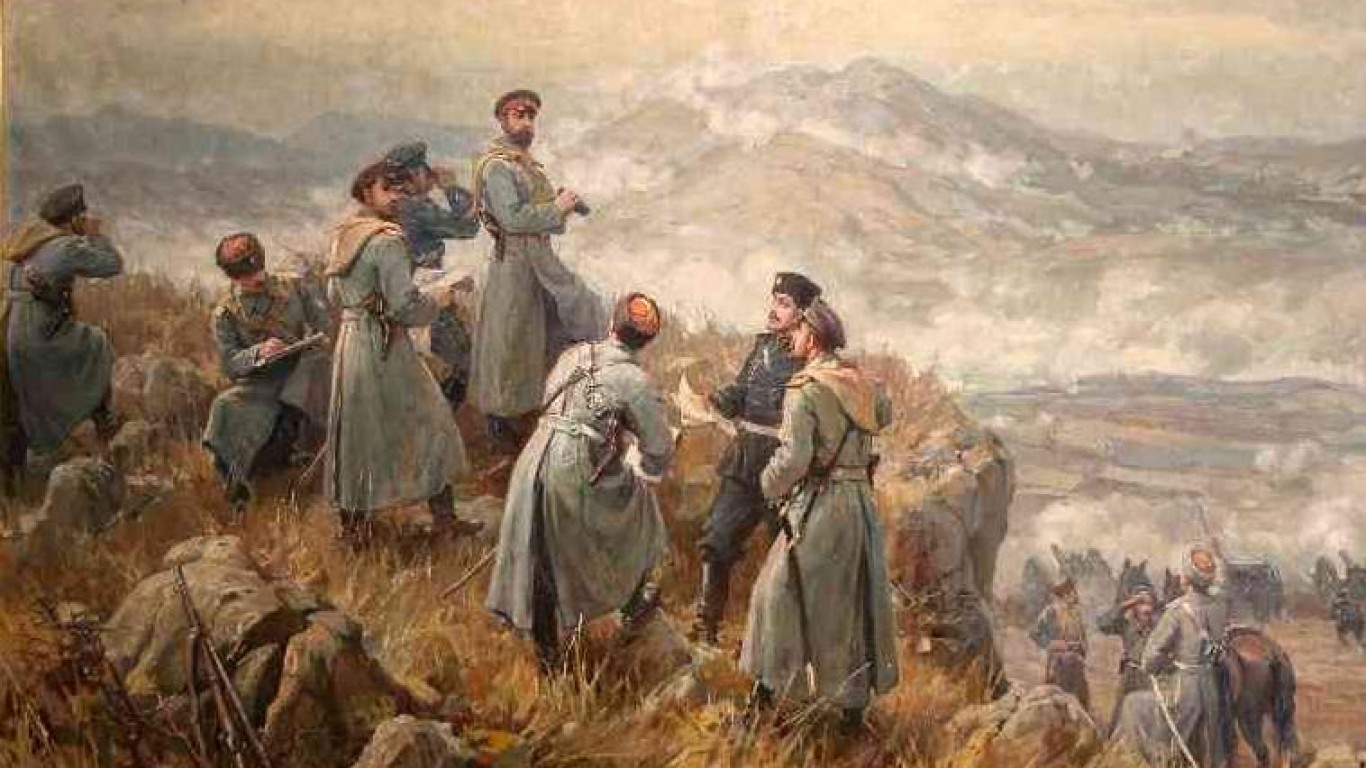
8. Serbo-Bulgarian War
> Length: 14 days
> Span: Nov. 14-28, 1885
> Combatants Serbia, Bulgaria
Serbia and Bulgaria fought a two-week war in late 1885. King Milan of Serbia mobilized troops on the border with Bulgaria after becoming concerned that the country’s unification with Roumelia could upset the balance of power in the Balkans. After some back-and-forth between the leaders of both nations, Serbia declared war.
The Serbian forces were easily repelled back over the border by the Bulgarian army. The conflict ended quickly when the Bulgarians agreed to an armistice on Nov. 28 because an envoy from Austria-Hungary threatened the country would intervene if the fighting did not stop. The two countries signed a formal peace treaty in March of the next year.
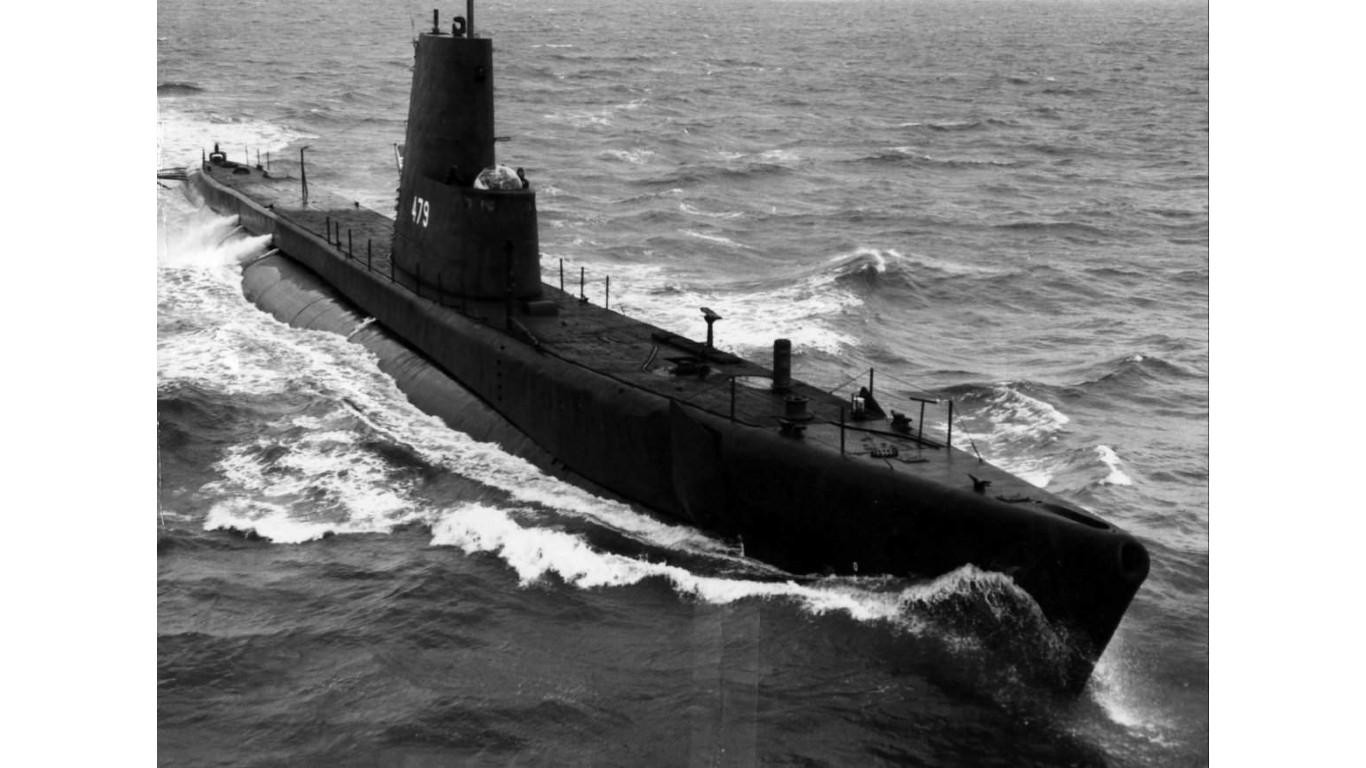
7. Indo-Pakistani War
> Length: 13 days
> Span: Dec. 3-16, 1971
> Combatants India, East Pakistan, West Pakistan
The Indo-Pakistani War of 1971 was a continuation of long-simmering hostilities in the region between India, Pakistan (then West Pakistan), and Bangladesh (then East Pakistan). West Pakistan violently stemmed nationalist movements in East Pakistan beginning in March 1971 as many separatists sought independence. India was brought into the conflict when West Pakistan launched airstrikes against India in December of that year.
The war was brief but bloody, as the Indian Army defeated West Pakistani forces – who were already fighting East Pakistan – in under two weeks. As a result, East Pakistan gained its independence and became Bangladesh.
[in-text-ad-2]
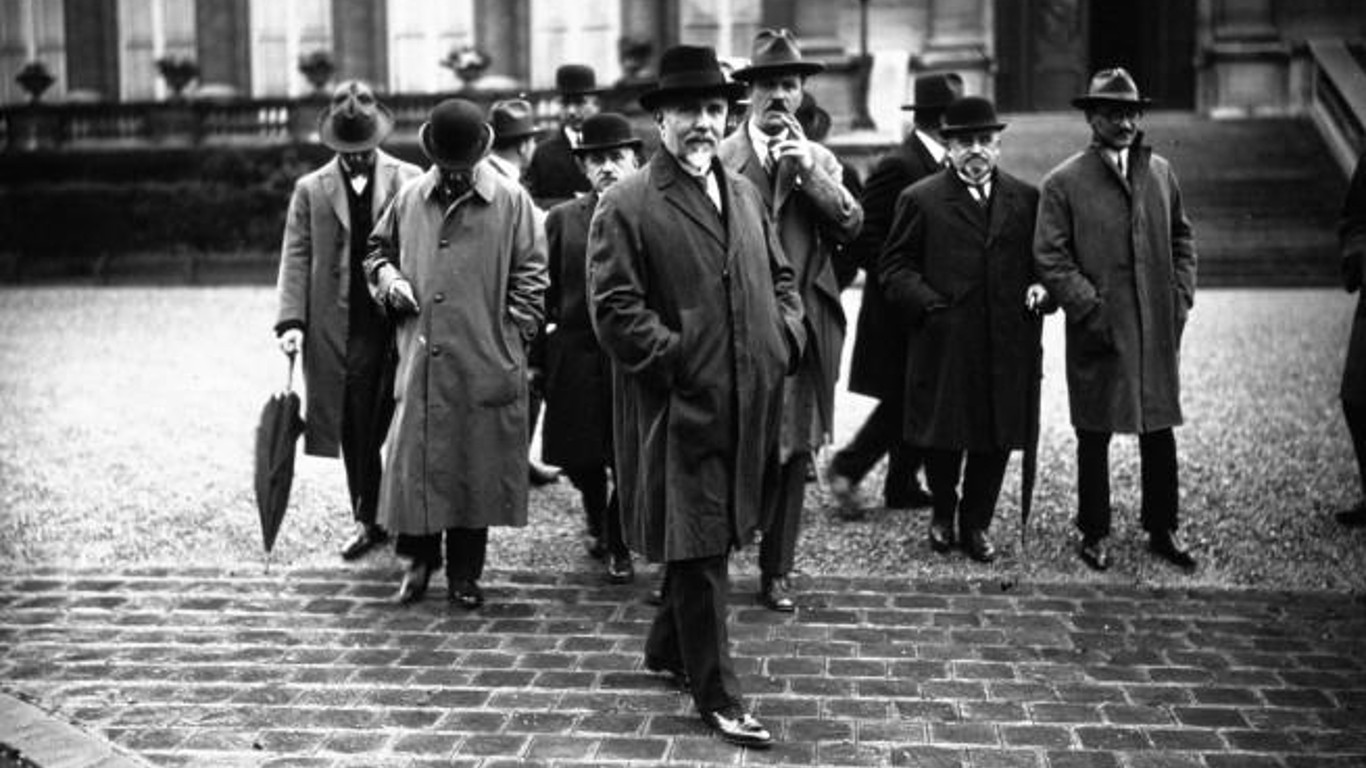
6. War of the Stray Dog
> Length: 11 days
> Span: Oct. 19-29, 1925
> Combatants Greece, Bulgaria
Greece and Bulgaria were already antagonists in the early 20th century due to territorial disputes. The nations warred briefly in The War of the Stray Dog, also known as The Incident at Petrich, in 1925. Histories of the conflict differ on exactly what happened – some say Bulgarian guards shot and killed a Greek soldier when he ran over the border to retrieve his runaway dog. Others say a Bulgarian soldier was killed for the same reason.
Whatever the inciting incident was, Greece demanded compensation for what happened, and when Bulgaria refused, the Greek Army invaded. After just a few days of fighting, Bulgaria called on the League of Nations to intervene. The League insisted that Greece leave Bulgaria and pay £45,000 as compensation, which Greece agreed to do.
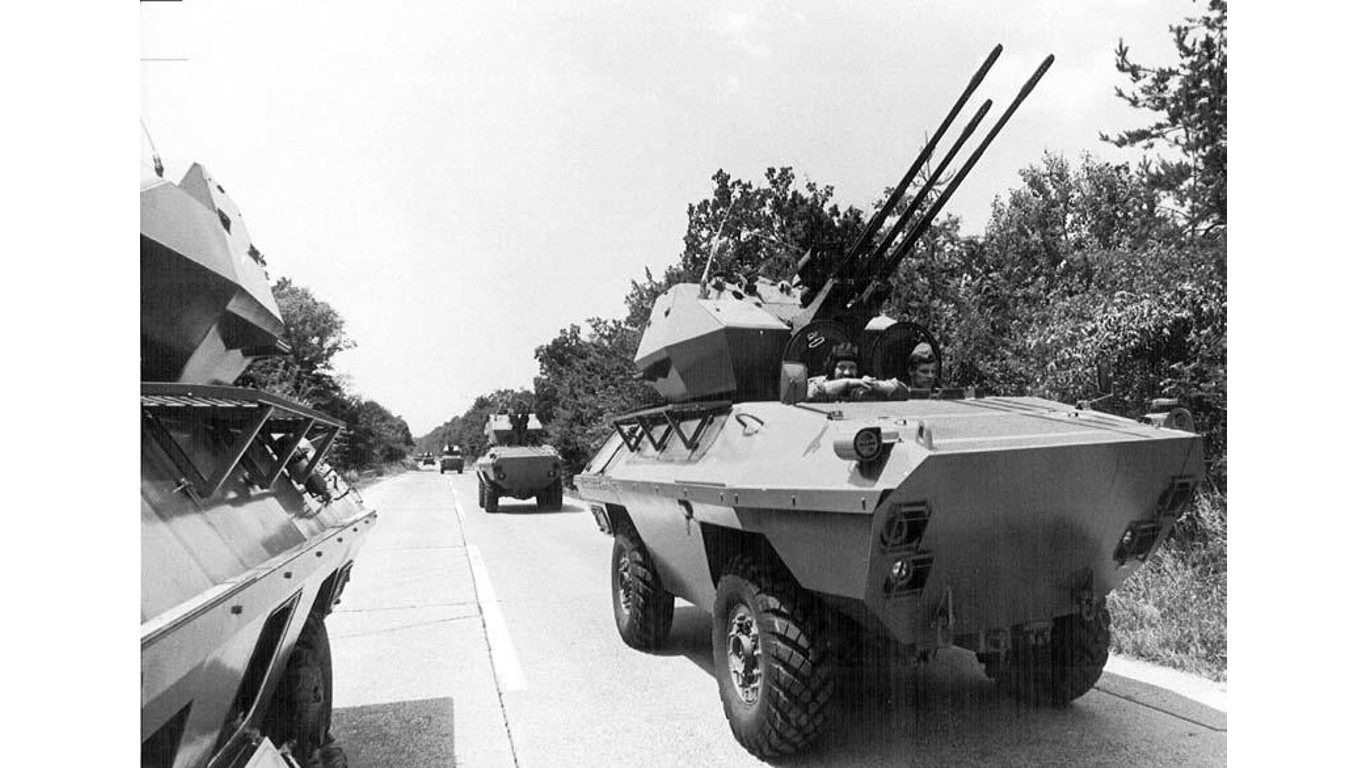
5. Slovenian Independence War
> Length: 10 days
> Span: Jun. 27-Jul. 7, 1991
> Combatants Slovenia, Yugoslavia
In the early 1990s, many parts of Eastern Europe were pulling away from communism and towards democracy. Nationalist sentiments among the many territories in Yugoslavia grew, especially as Serbian leader Slobodan Milosevic sought to consolidate power. Slovenia declared its independence on June 25, 1991.
The Yugoslavian army was sent to intervene and take back control of Slovenia but was unable to make any headway into the country. Shortly after the attack, many non-Serbian soldiers deserted their posts, as they had no interest in holding Yugoslavia together. After 10 days of fighting, Yugoslavian troops withdrew and Slovenia had gained its independence.
[in-text-ad]
4. Russo-Georgian War
> Length: Six days
> Span: Aug. 7-12, 2008
> Combatants Russia, Georgia
Since the downfall of the Soviet Union in 1991, two regions of Georgia – South Ossetia and Abkhazia – have been in dispute between Georgia and pro-Russian separatists. The simmering hostilities came to a boil in 2008, when U.S. President George W. Bush expressed support for Georgia to join NATO, which Russia considered hostile.
In August 2008, after several months of troops gathering on either side of the border, fighting broke out in the disputed regions after Russia launched airstrikes on South Ossetia. Russia’s military pushed into Georgia for several days. The two sides agreed to a ceasefire, and Russia now recognizes South Ossetia and Abkhazia as independent regions.

3. Six-Day War
> Length: Six days
> Span: Jun. 5-10, 1967
> Combatants Israel, Egypt, Jordan, Syria, Iraq
Since Israel’s formation in 1948, the country has been in near-constant conflict with surrounding Arab nations. These tensions led to a series of escalating border skirmishes in the mid-1960s that devolved into all-out war on June 5, 1967. Egypt, Syria, and Jordan massed troops near Israel’s border, and Israel responded by launching a preemptive airstrike, wiping out almost all of Egypt’s air force.
Israel quickly gained the upper hand and wiped out much of Syria’s air capabilities as well. Israeli soldiers pushed through the Gaza Strip and the Sinai Peninsula. Israel was also able to overwhelm Jordanian forces and took control of Jerusalem, the Golan Heights, and the West Bank. The nations agreed to a ceasefire on June 10, with Arab countries suffering heavy casualties and Israel expanding its geographic footprint significantly.
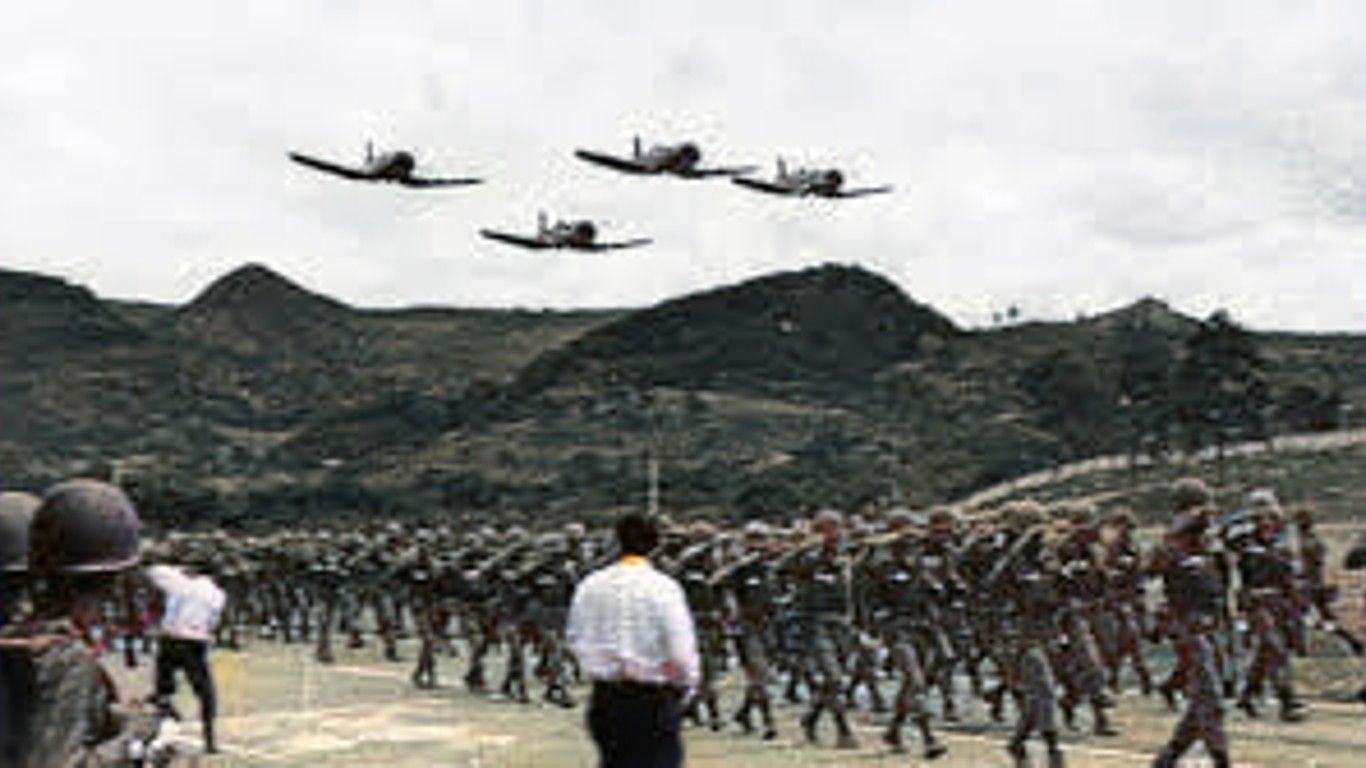
2. Football War
> Length: 100 hours
> Span: Jul. 14-18, 1969
> Combatants El Salvador, Honduras
In the late 1960s, many immigrants left El Salvador, hoping to find work in neighboring Honduras. They were often mistreated, and many were forced out when the Honduran government tried to redistribute land Salvadorans worked back to Hondurans. These tensions boiled over when the two countries happened to play each other in World Cup Qualifying soccer matches. Mob violence broke out between supporters when the teams played.
As tensions rose, El Salvador severed diplomatic ties with Honduras, and several border skirmishes ensued. On July 14, 1969, El Salvador’s army invaded Honduras, sending warplanes to bomb the country. Roughly 3,000 people died – mostly Honduran civilians – before a ceasefire stopped the fighting 100 hours later.
[in-text-ad-2]
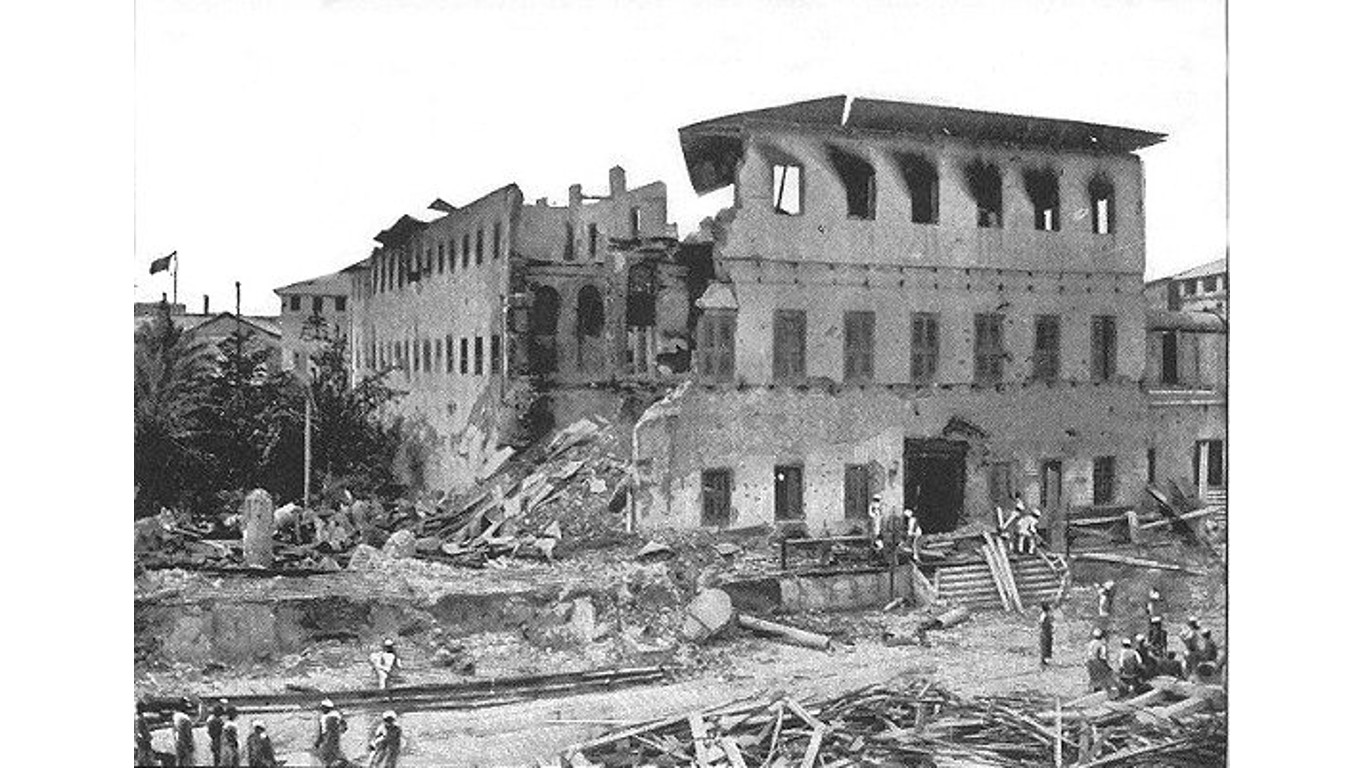
1. Anglo-Zanzibar War
> Length: 38 minutes
> Span: Aug. 27, 1896
> Combatants Zanzibar, British Empire
The shortest war in recorded history is known as the Anglo-Zanzibar War. In the late 19th century, Zanzibar was a British protectorate. The sultan of Zanzibar died in 1896, leaving several potential successors in line for the throne. The British wanted Hamud ibn Mohammed to ascend to the throne because they thought he would be friendly to the Empire, but Prince Khalid ibn Barghash seized the palace.
ABritish Royal Navy admiral ordered Barghash out of the palace, but he refused to leave. The Zanzibari forces were hopelessly outgunned by the far superior British naval forces and hundreds were killed, while only one British troop was even wounded. The war ended in under 40 minutes with Barghash’s surrender.
In 20 Years, I Haven’t Seen A Cash Back Card This Good
After two decades of reviewing financial products I haven’t seen anything like this. Credit card companies are at war, handing out free rewards and benefits to win the best customers.
A good cash back card can be worth thousands of dollars a year in free money, not to mention other perks like travel, insurance, and access to fancy lounges.
Our top pick today pays up to 5% cash back, a $200 bonus on top, and $0 annual fee. Click here to apply before they stop offering rewards this generous.
Flywheel Publishing has partnered with CardRatings for our coverage of credit card products. Flywheel Publishing and CardRatings may receive a commission from card issuers.
Thank you for reading! Have some feedback for us?
Contact the 24/7 Wall St. editorial team.
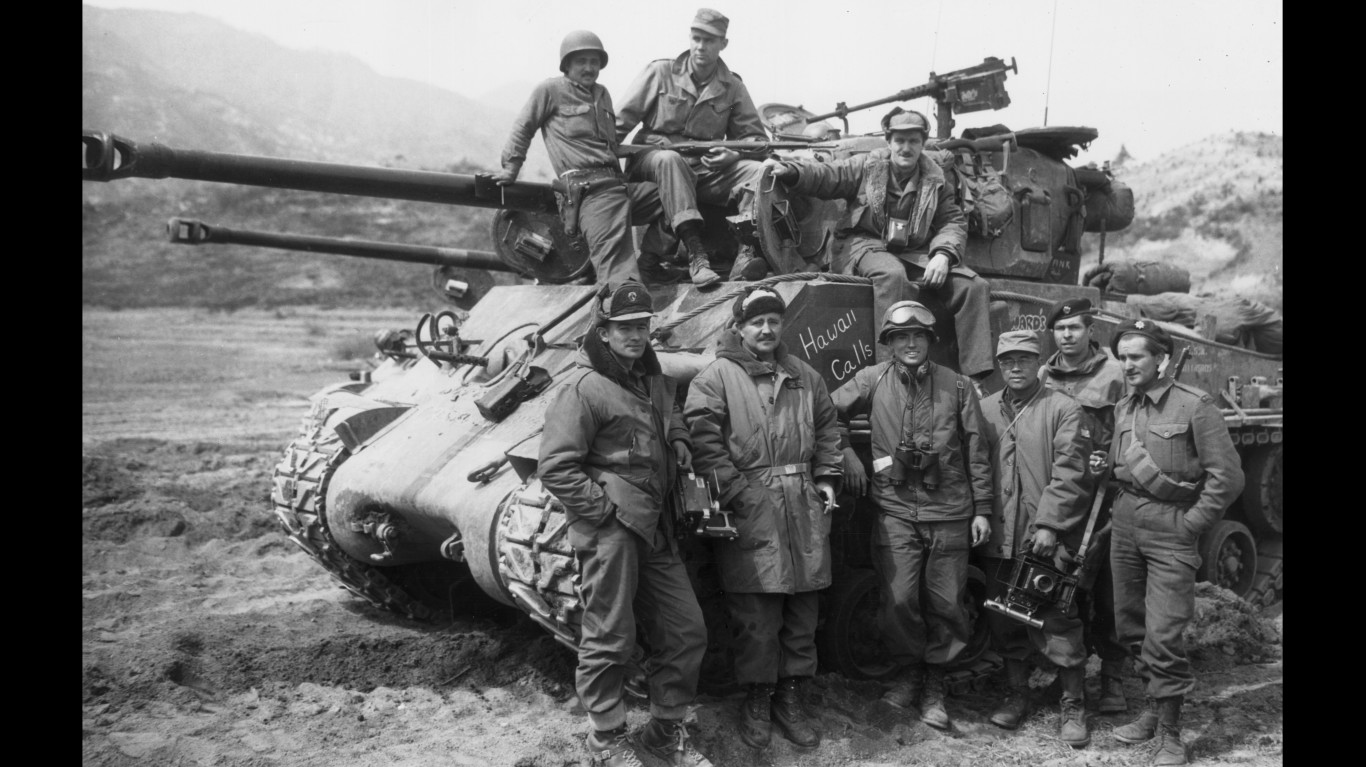 24/7 Wall St.
24/7 Wall St.